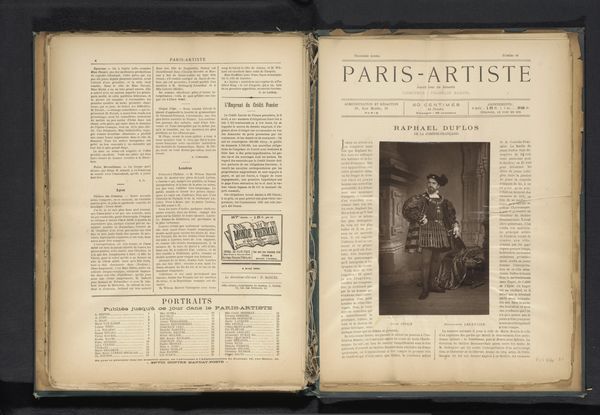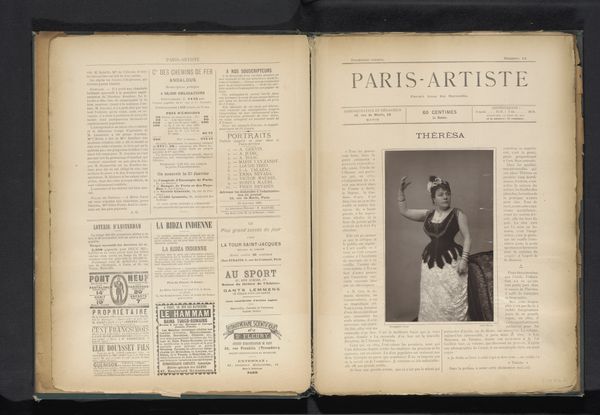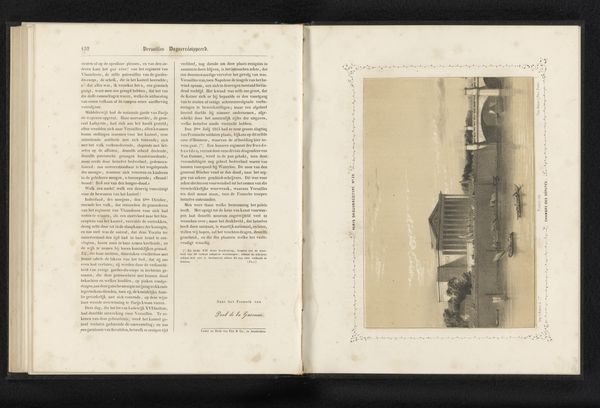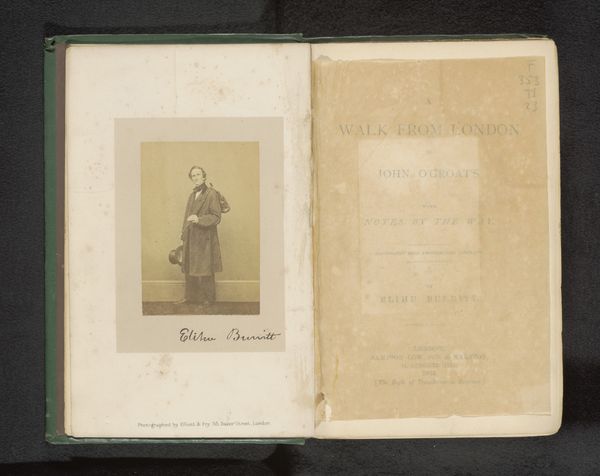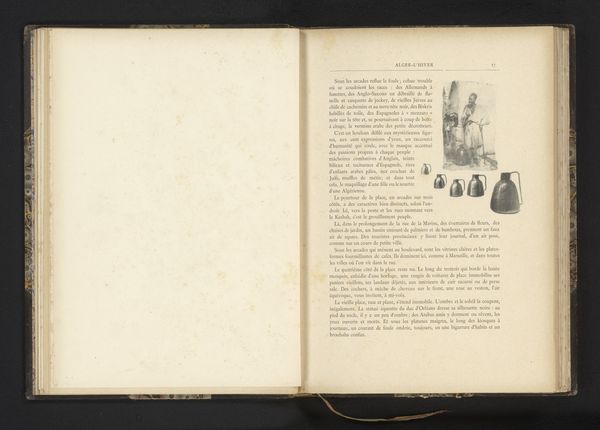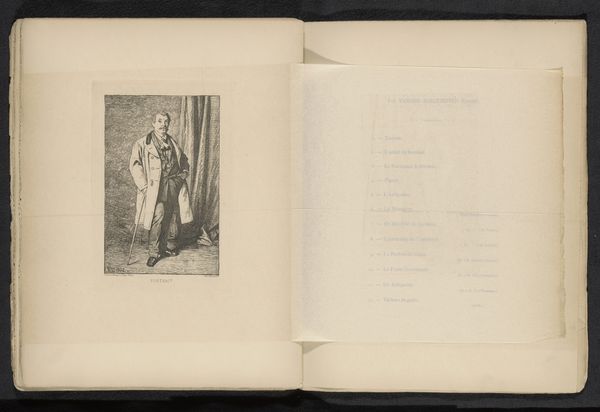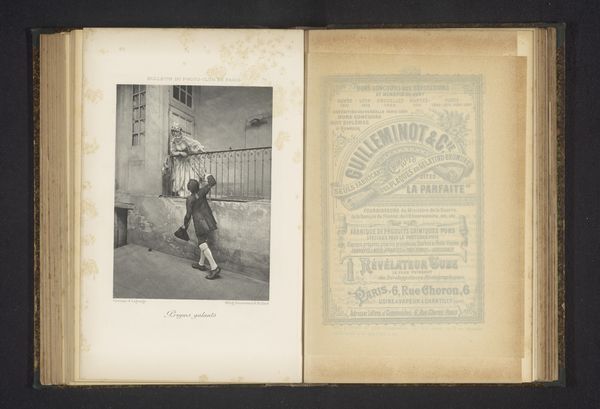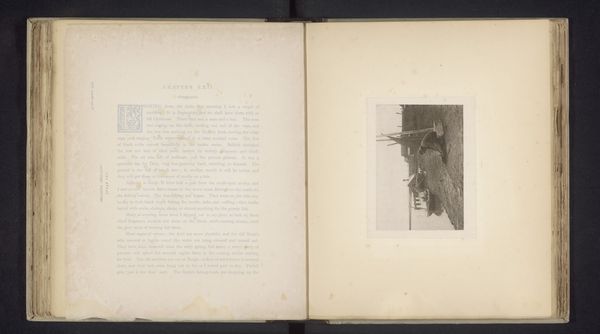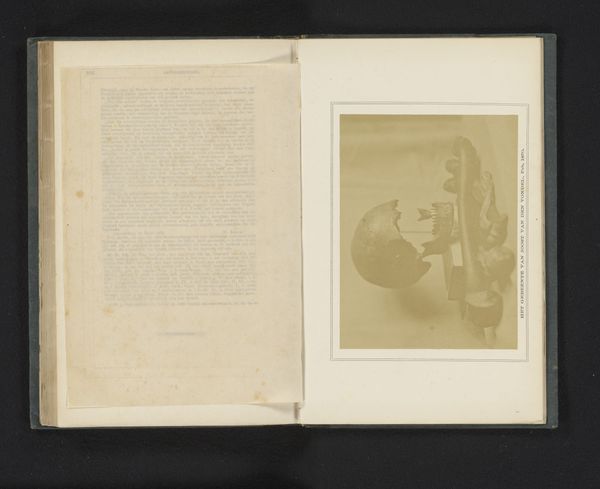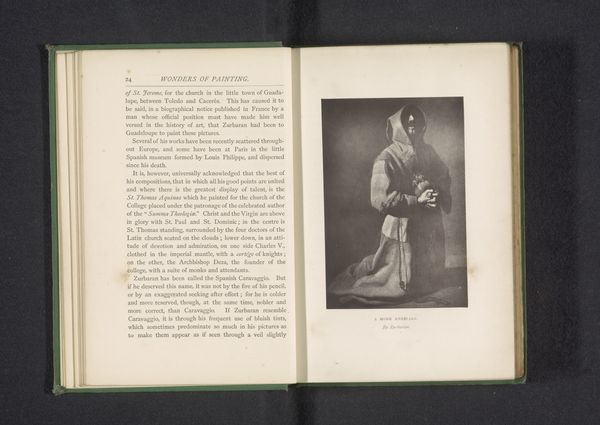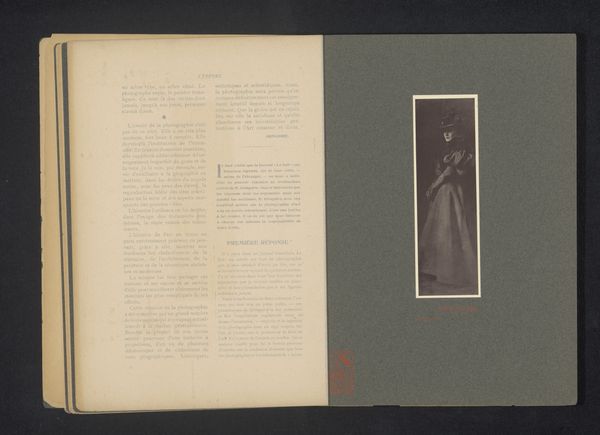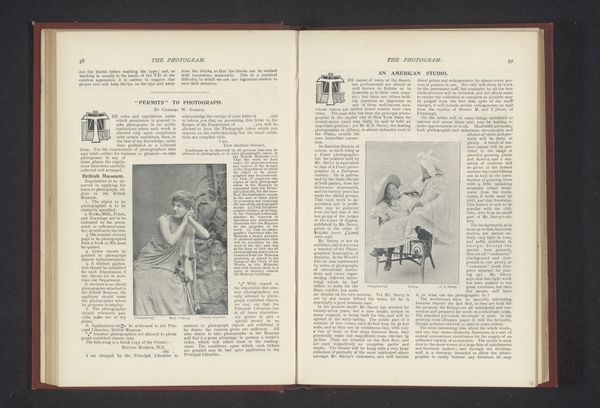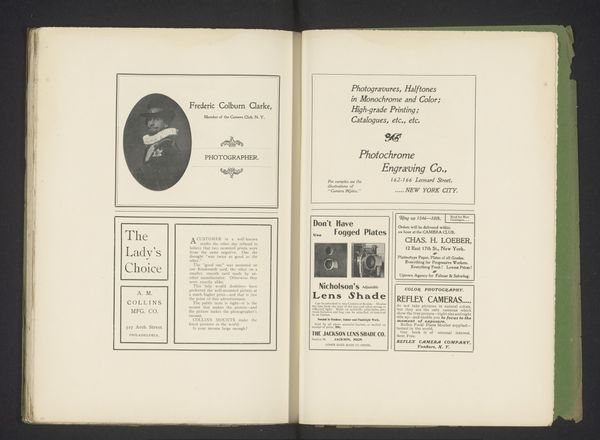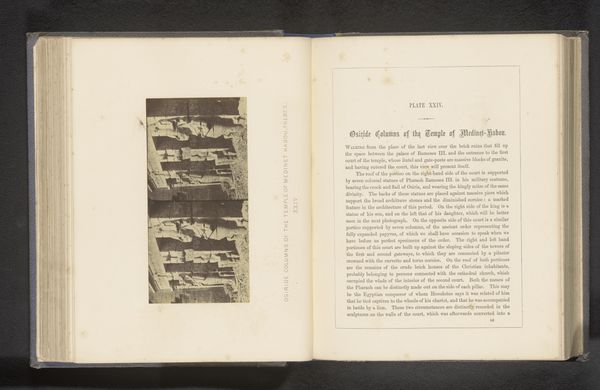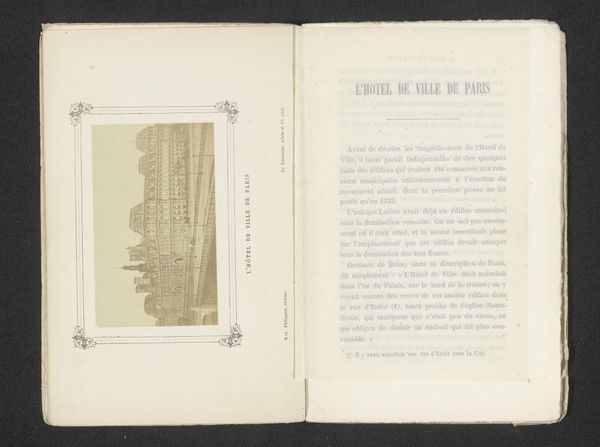
photography
#
portrait
#
aged paper
#
homemade paper
#
paper non-digital material
#
paperlike
#
impressionism
#
typeface
#
block of text
#
photography
#
journal
#
paper medium
#
historical font
#
columned text
Dimensions: height 190 mm, width 121 mm
Copyright: Rijks Museum: Open Domain
This is a photographic portrait of Pol Plançon by Wilhelm Benque, dating to the late 19th century. It is not just an image, but a printed page of ‘Paris-Artiste’, a magazine dedicated to personalities and events in the French capital. Here, the material of paper is key. Its thinness allowed for mass production and distribution, bringing images of celebrated figures like Plançon, an opera singer, into homes and public spaces. The photograph itself would have been made using a wet collodion process, capturing incredible detail. Yet, its transformation into a half-tone print for mass consumption involved a complex process of labor, chemicals, and mechanical reproduction. The image's inherent qualities of tone and texture are mediated through this production. Considering the paper's inherent fragility, this surviving page prompts us to consider the relationship between artistic expression, industrial production, and how printed images shape our understanding of celebrity and culture. It challenges the divide between the unique artwork and the readily available printed image, inviting us to look closer at the role of materials and processes in shaping our visual world.
Comments
No comments
Be the first to comment and join the conversation on the ultimate creative platform.
